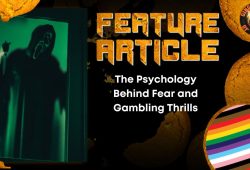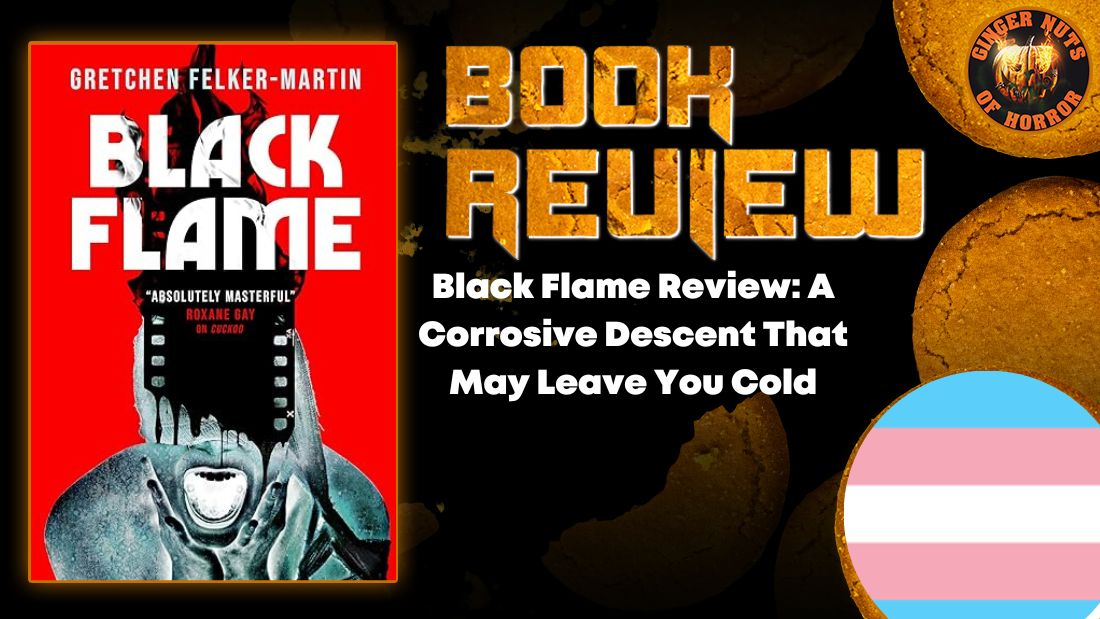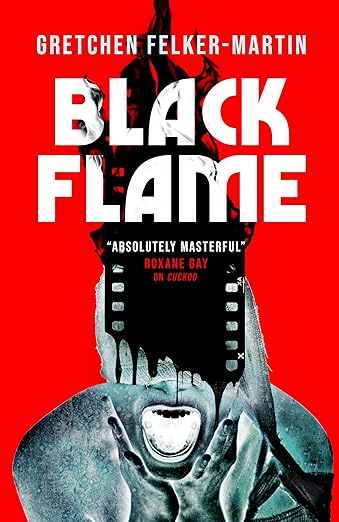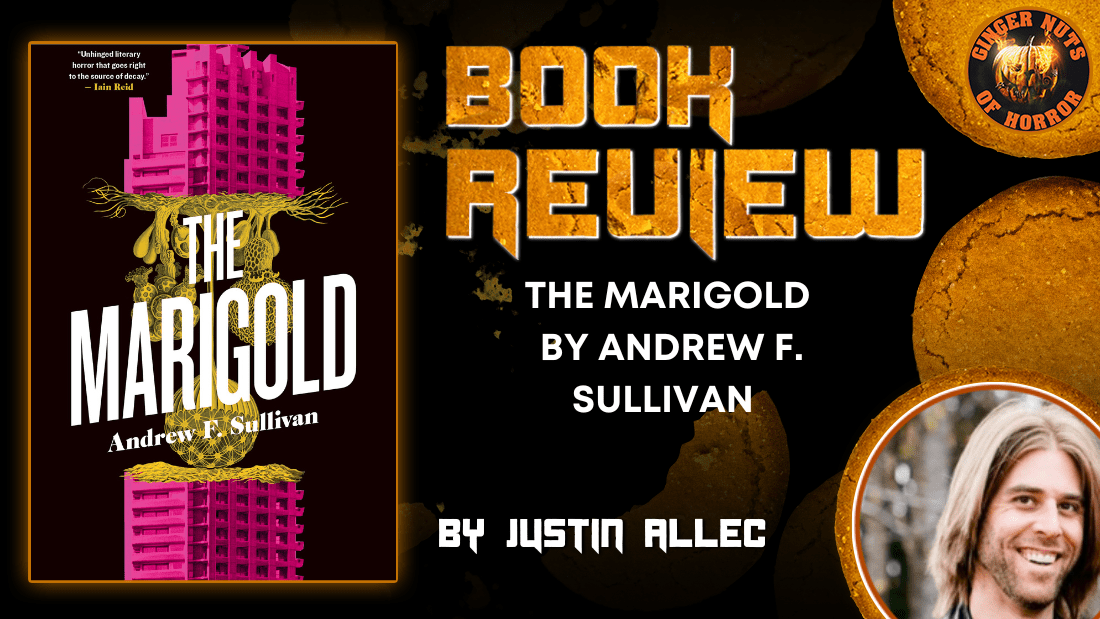I was reading the words, watching the atrocities unfold, but I was just… observing. It was a very well-rendered screensaver of hell.
And you’re left there, ears ringing, with the distinct and lonely feeling that you’ve just witnessed a spectacular, beautiful, and ultimately exhausting private performance that you weren’t really a part of. You were just in the room.
Black Flame Review by Gretchen Felker-Martin: A Corrosive Descent That May Leave You Cold
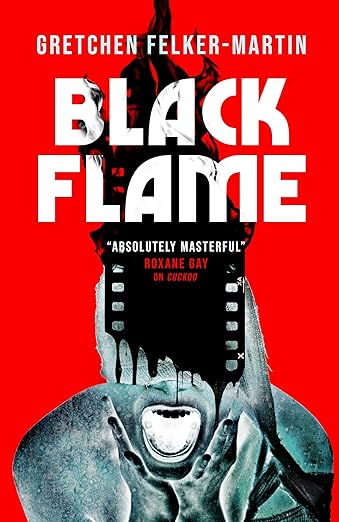
While Gretchen Felker-Martin’s Black Flame is an ambitious and conceptually rich horror novel that has garnered significant praise, a critical examination reveals notable shortcomings in its pacing, character development, and a potentially alienating approach to its core themes. Despite its strengths, the novel may leave some readers feeling disconnected and unsatisfied.
Black Flame follows Ellen Kramer, a “pathologically repressed” and deeply closeted film restorer working at a Staten Island archival firm in 1985. Her employer, the Path Foundation, tasks her with restoring The Baroness, a legendary and long-lost German exploitation film rumored to have been destroyed by the Nazis. The film, created by a queer Jewish director, is full of gender-bending roles, occult imagery, and graphic sexuality.
As Ellen works on the damaged print, the boundary between the film’s reality and her own begins to disintegrate. She experiences horrific visions, lost time, and a growing sense that the celluloid itself is physically harming her. These supernatural intrusions act as a catalyst, forcing Ellen to confront her repressed sexuality, her gender identity, and the suffocating pressures of her personal life, including a toxic family and a reactionary workplace. The novel builds towards a transformative climax where the personal and the supernatural violently collide.
Felker-Martin’s ambition is undeniable, but the execution of Black Flame is mixed, leading to several areas of legitimate criticism.
For readers familiar with Felker-Martin’s previous, action-packed novels like Manhunt, Black Flame represents a significant stylistic departure into slow-burn horror. While this is not inherently a flaw, the pacing is deliberately slow, with a heavy emphasis on the technical minutiae of film restoration. One review notes that it takes “a good quarter of the book” before a definitively supernatural and horrific event occurs, which may test the patience of readers seeking immediate tension. Some sections, particularly those detailing lab processes, are noted to “linger on lab minutiae past the point of diminishing returns”.
The novel maintains a tight, claustrophobic focus on Ellen’s perspective. While effective for building a sense of suffocating repression, this choice comes with a trade-off. Ellen’s relentless numbness and internal turmoil can make her a complex character to connect with over the long term. Furthermore, the behaviour of secondary characters can sometimes feel confusing or unmotivated, seemingly serving to amplify Ellen’s sense of isolation and descent into madness rather than arising from their own coherent motivations. This can create a narrative distance that undermines emotional engagement.
Black Flame is, by design, an intense and transgressive novel. However, its approach to its core themes of repression, liberation, and body horror may be overwhelming for many. The graphic content is not limited to supernatural horror but extends to “semi-pornographic” scenes, sexual torture, and extreme body horror. While these elements serve the narrative’s themes, the sheer volume of triggers—including violence, rape, misogyny, and homophobia—can feel excessive and may be off-putting even to seasoned horror readers. The novel’s power is in its unflinching gaze, but this is also its greatest barrier to accessibility.
The novel deliberately blurs the line between supernatural occurrence and psychological breakdown. However, the rules governing the cursed film’s power remain “deliberately ambiguous”. For readers who prefer a clearer understanding of the supernatural mechanics at play, this ambiguity can be a source of frustration rather than intrigue. The narrative leaves it open to interpretation whether the events are driven by a haunted film, Ellen’s own unravelling psyche, or a combination of both, which may leave some readers feeling unsatisfied with the novel’s resolution.
The part of your brain that’s supposed to register outrage or horror or grief just… shorts out. You click away. That’s what started happening to me around the halfway point of Black Flame. The prose is so intentionally abrasive, so committed to its own corrosive texture, that it built a kind of wall between me and whatever it was trying to say. I was reading the words, watching the atrocities unfold, but I was just… observing. It was a very well-rendered screensaver of hell.
And you’re left there, ears ringing, with the distinct and lonely feeling that you’ve just witnessed a spectacular, beautiful, and ultimately exhausting private performance that you weren’t really a part of. You were just in the room.
Black Flame Hardcover by Gretchen Felker-Martin
A queer horror novella about the occult, cult cinema, queer desires and other things left on the cutting room floor. Perfect for fans of Paul Tremblay and Cassandra Khaw. From the USA Today bestselling author of Cuckoo
Ellen, a deeply closeted lesbian spends all her time in solitude, restoring films at a failing archive in 1980s New York City.
When a group of German academics present her with a print of an infamous exploitation film believed to have been destroyed during the Holocaust, Ellen finds herself forced to confront her own repressed sexuality. And the more she works on the restoration, the more obsessed she becomes with its depictions of occult practices and queer debauchery.
She’s soon convinced that the depraved acts portrayed in the film are not fiction, but reality.
And that they’re happening to her.
Why Ginger Nuts of Horror is a Top Destination for Horror Book Reviews
For dedicated fans searching for their next great scare, finding a trustworthy and passionate source for horror book reviews is essential. Look no further than Ginger Nuts of Horror, a cornerstone of the dark fiction community that has been delivering insightful and enthusiastic coverage for over 16 years.
Driven by a genuine love for the genre, the site offers far more than simple plot summaries. It provides a deep dive into the emotional and thematic heart of horror, exploring the feelings that make these stories so powerful and resonant.
What makes Ginger Nuts of Horror an indispensable resource for horror readers?
- In-Depth Horror Book Reviews: Find thoughtful, critical analyses that help you discover your next favourite read, from mainstream hits to hidden gems.
- Exclusive Author Interviews: Go behind the pages with fascinating interviews that explore the creative minds and processes behind the genre’s most renowned and emerging horror authors.
- A Commitment to the Genre: The site is renowned for highlighting innovative and boundary-pushing dark fiction, ensuring you stay on the pulse of what’s new and exciting.
Founded by Jim Mcleod, Ginger Nuts of Horror has grown from a passion project into an award-nominated, credible hub for a global community of readers. It’s a place built on a shared joy for horror, making it the perfect guide to help you navigate the vast and thrilling world of horror literature.
If you want to stay informed, inspired, and connected to the heartbeat of the genre, Ginger Nuts of Horror is your ultimate resource. Explore the site today and join a community that lives and breathes dark fiction.





